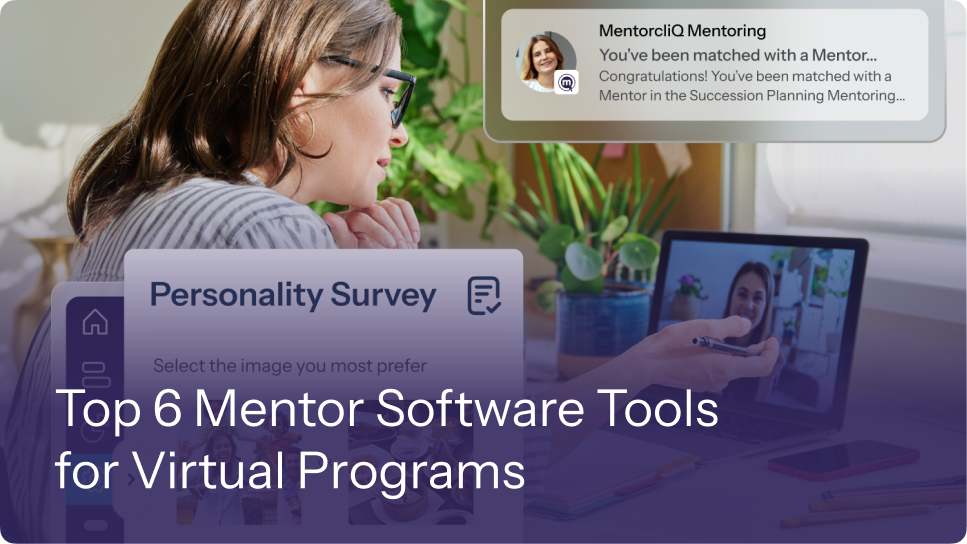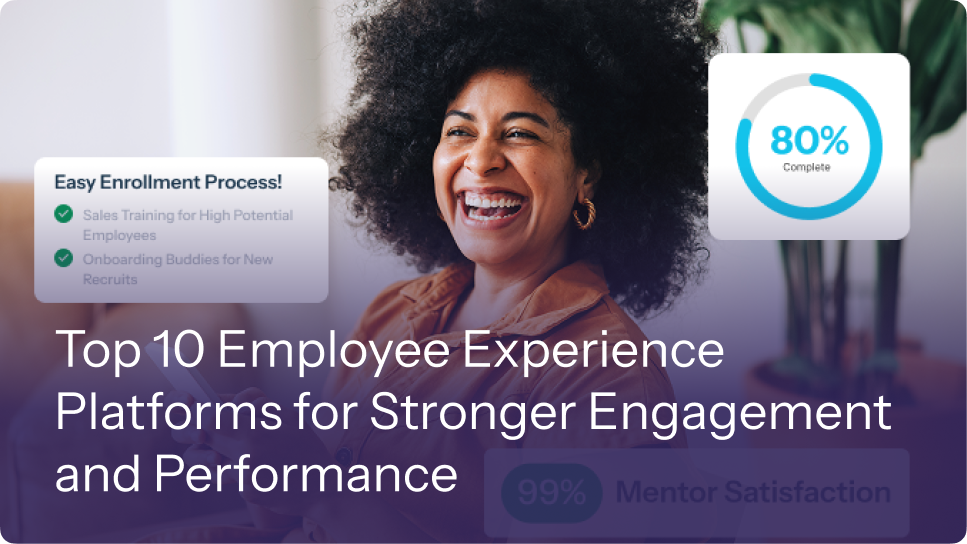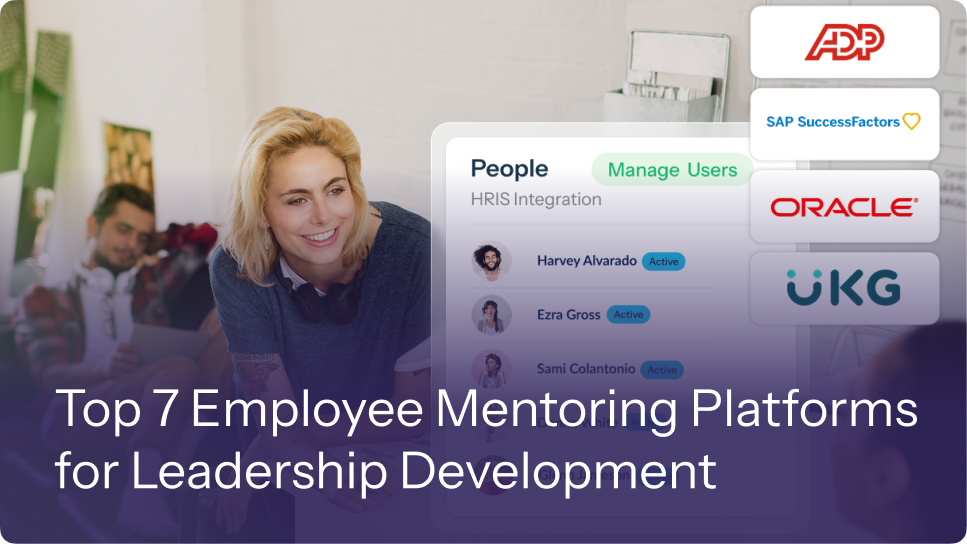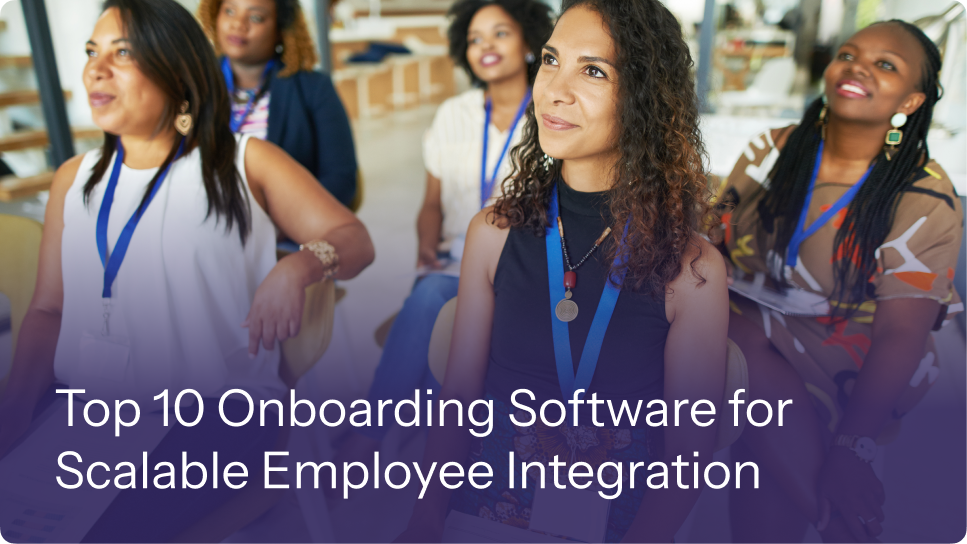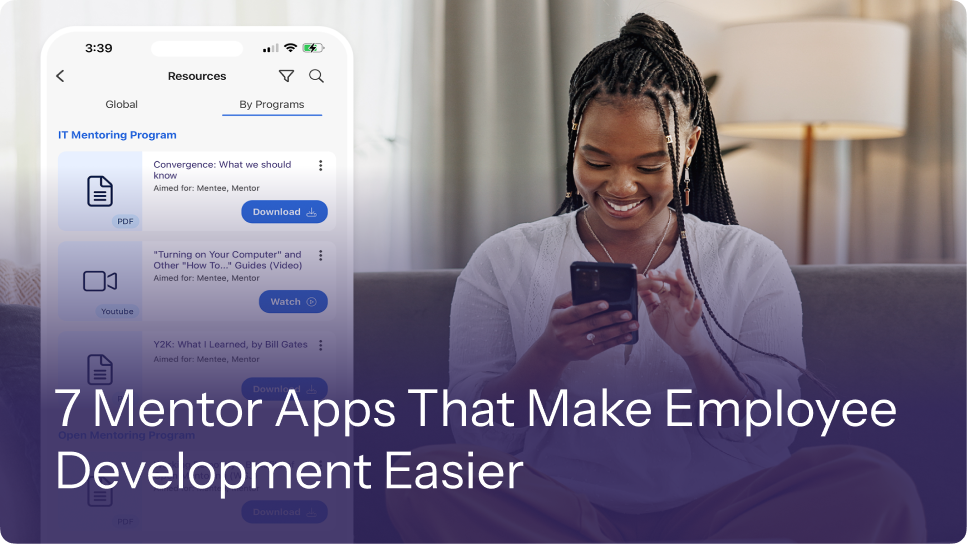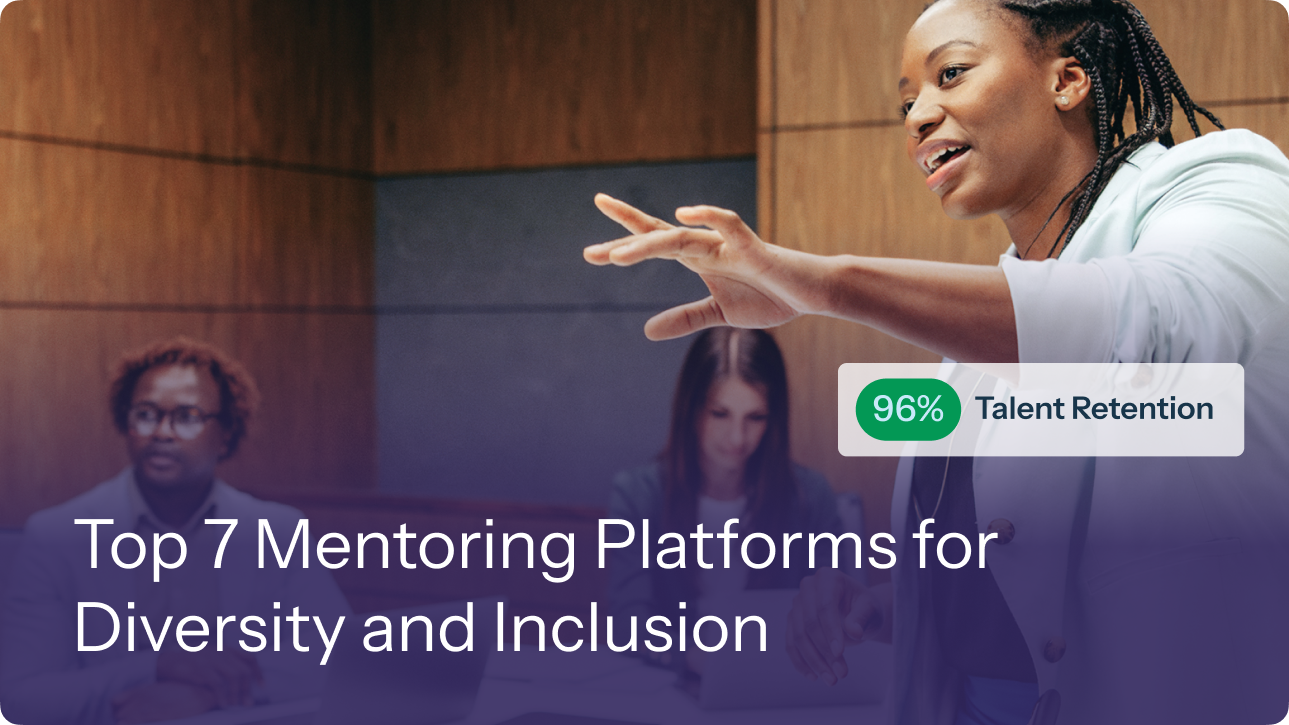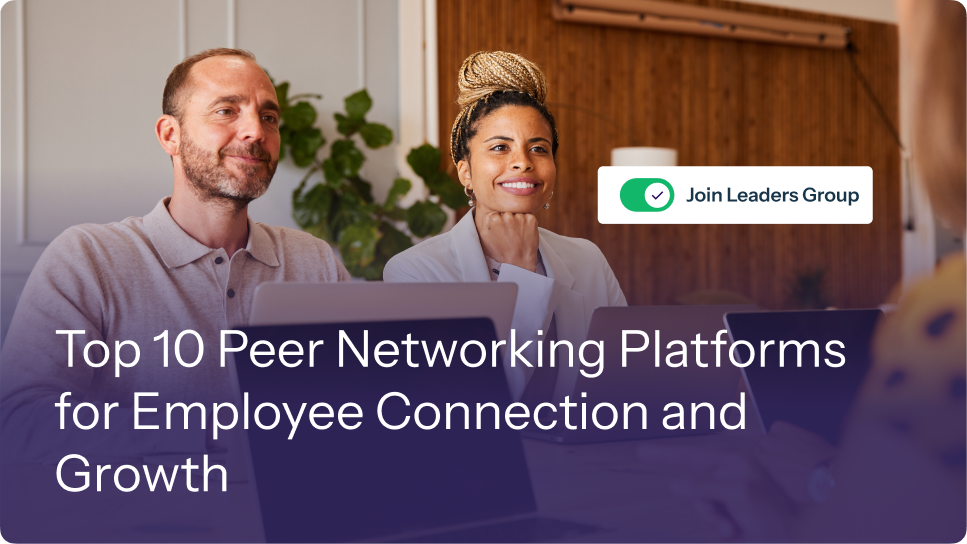Virtual work has redefined how employees build relationships, share knowledge, and grow careers. HR and DEI leaders are now expected to provide connection and development opportunities that work equally well for on-site, hybrid, and remote employees.
Traditional mentoring—once dependent on in-person interaction—has evolved into a scalable, digital practice supported by modern mentor software tools.
The most effective virtual mentoring programs are not simply video calls. They are structured, measurable experiences supported by data-driven matching, guided conversations, and clear accountability.
Software now plays a central role, helping organizations design inclusive mentoring ecosystems that operate seamlessly across time zones and business units.
MentorcliQ’s client research shows that structured mentoring significantly improves retention and engagement. Employees participating in mentoring average 9% turnover compared to 19% among those without access—a 32% reduction. When mentoring programs run alongside employee resource groups (ERGs) through CommunityCliQ, that reduction can reach 62%, reflecting the power of integrated connection programs.
As companies extend hybrid work models, these outcomes demonstrate why dedicated mentor software tools have become essential. The following platforms make it possible to manage, measure, and scale mentoring programs that support career growth and belonging in virtual environments.
What Are Mentor Software Tools
Mentor software tools are platforms that match mentors and mentees, guide their interactions, and measure outcomes across remote and hybrid teams. For virtual programs, they replace manual spreadsheets with automated matching, structured workflows, and integrated communication.
Key Features of Mentor Software Tools
Selecting software is a governance decision. The right capabilities reduce admin work, support inclusion goals, and produce defensible ROI across virtual programs.
Intelligent Matching
Algorithmic matching based on goals, skills, and preferences. Weighted rules help you meet DEI objectives across geographies.
Virtual Engagement & Scheduling
Calendar, chat, and video integrations that make remote sessions simple. Guided agendas and prompts keep conversations productive.
Program Management Dashboard
Cohort views, bulk actions, templates, and automation. Admins monitor momentum and intervene before pairs stall.
Analytics & ROI
Dashboards for participation, meeting cadence, goal progress, satisfaction, and retention so you can link mentoring to business outcomes.
Scalability & Integrations
Support for multiple program types (1:1, group, reverse), SSO, HRIS, and collaboration tools. Enterprise security and privacy controls are table stakes.
6 Best Mentor Software Tools for Virtual Programs
1. MentorcliQ
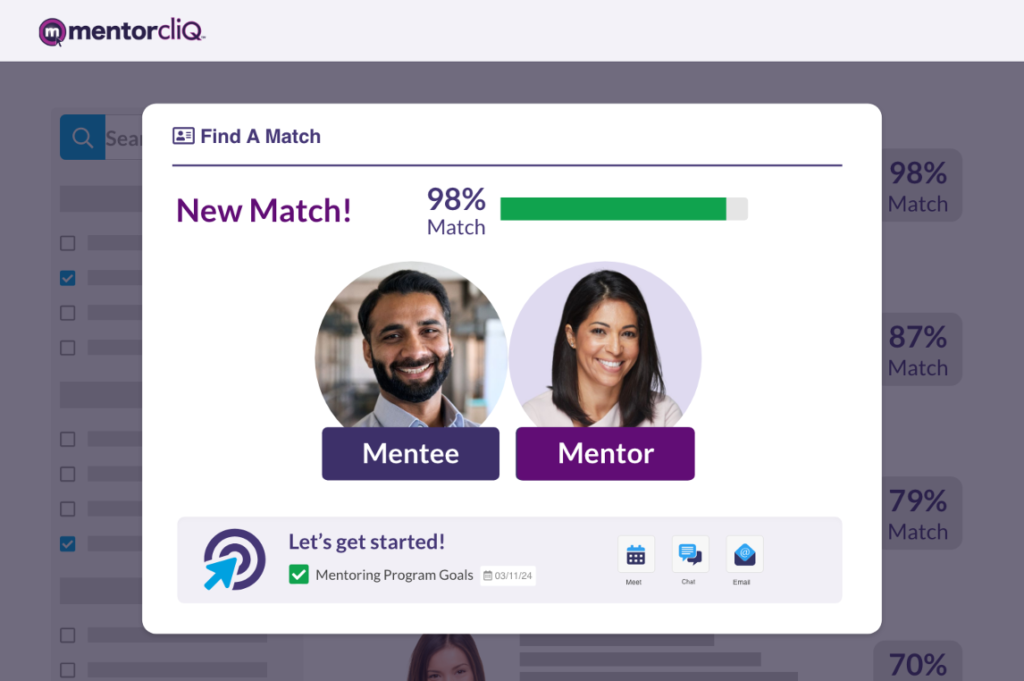
MentorcliQ is an industry-leading platform trusted by global enterprises to run inclusive, measurable virtual programs at scale. It combines configurable matching with robust analytics and automation, plus enterprise security and integrations.
Key Features:
- Intelligent matching with adjustable weights by program.
- Multi-format mentoring: 1:1, group, reverse, quick connections.
- Real-time dashboards, retention/engagement insights, and mobile access.
- SSO, HRIS/LMS/Calendar integrations, GDPR and SOC 2 controls.
Best for: Enterprises running multi-cohort, global, or DEI-focused virtual programs.
2. Guider
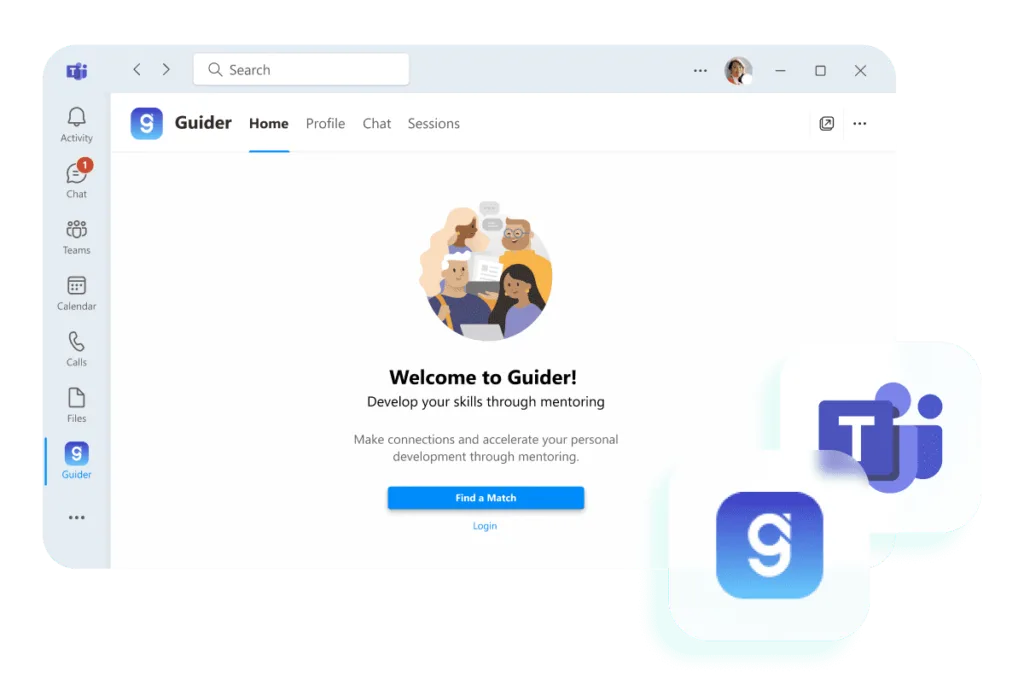
Guider provides mentoring and social learning with an emphasis on ease of deployment and flexible program design.
Key Features:
- Matching across 1:1, group, reverse, and cohort-based programs.
- Admin controls for multiple programs, plus clear participant UX.
- Reporting to track adoption and progress.
Best for: HR teams seeking fast rollout and flexible formats.
3. PushFar
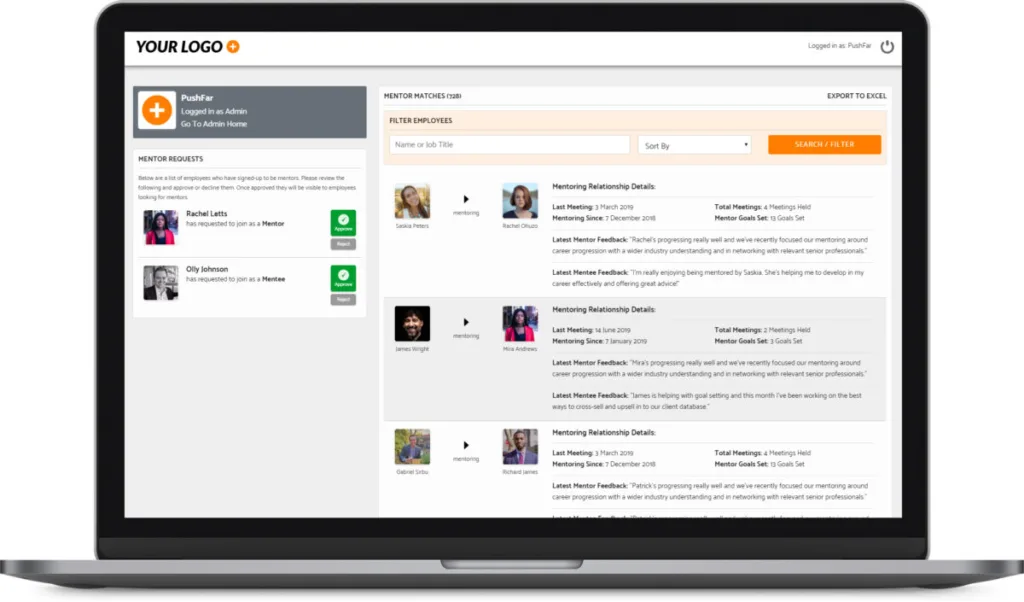
PushFar supports enterprise mentoring alongside a large mentoring network, helpful for broad access and visibility.
Key Features:
- Machine-learning-assisted matching and goal tracking.
- Simple program setup with career-progression tools.
- Web and mobile access for remote participants.
Best for: Organizations blending internal mentoring with wider networking.
4. Art of Mentoring

Art of Mentoring offers software plus structured methodology and training resources.
Key Features:
- Matching, guided journeys, and evaluation tools.
- Mentor/mentee training and content libraries.
- Admin features for program design and measurement.
Best for: Leaders who want software and curriculum in one.
5. People360 (formerly Insala)
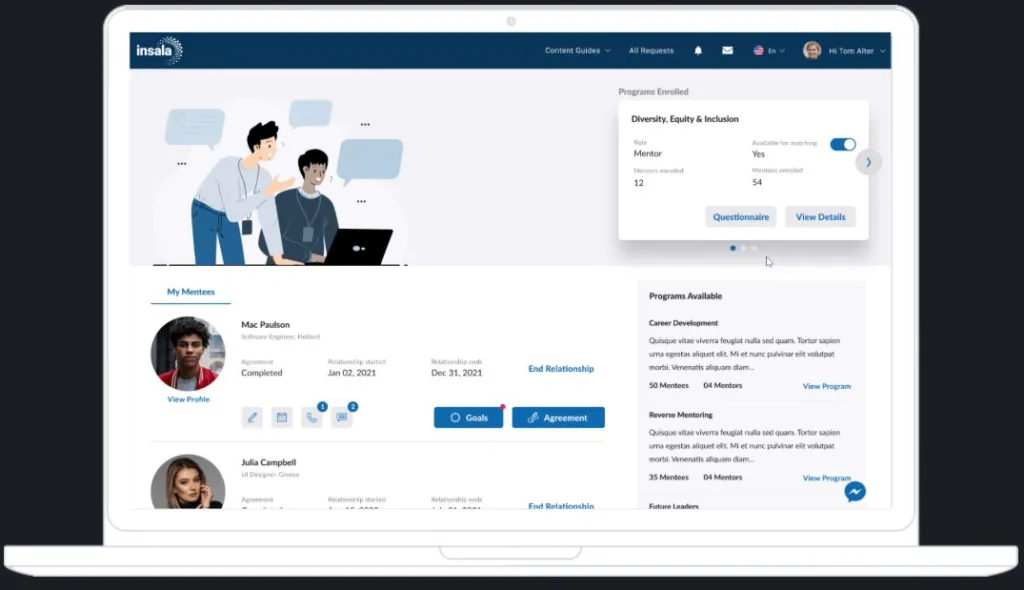
People360 delivers mentoring, coaching, and career-development solutions with enterprise support.
Key Features:
- Matching based on skills and goals.
- Progress tracking and communications features.
- Deployment guidance and support content.
Best for: Organizations linking mentoring to broader talent programs.
6. Ten Thousand Coffees
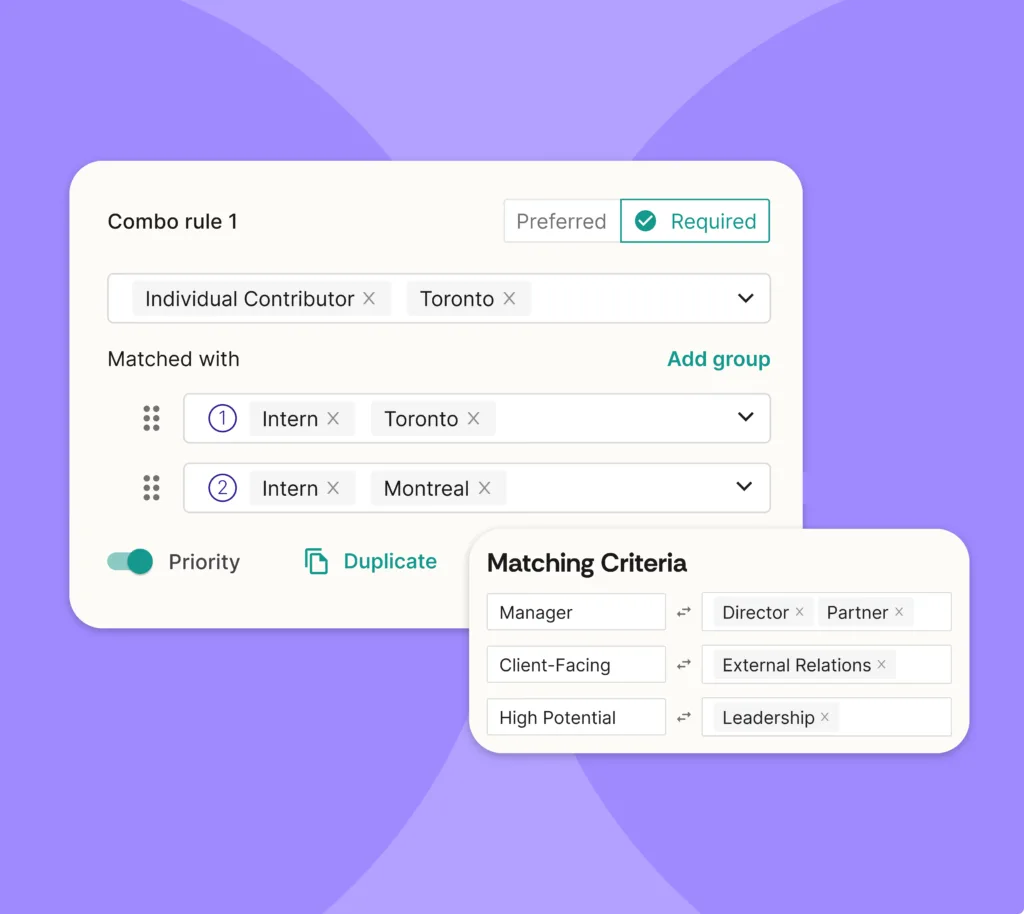
Ten Thousand Coffees emphasizes connection-based mentoring, pathways, and networking at scale.
Key Features:
- Smart matching, mentoring pathways, and calendar links.
- Program analytics tied to engagement and mobility.
- Use cases across leadership development and inclusion.
Best for: Companies prioritizing large-scale virtual connections and sponsorship.
Benefits of Mentor Software Tools for Virtual Programs
The goal is not activity—it is outcomes. The benefits below align mentoring to retention, mobility, and inclusion commitments.
Equitable Access at Scale
Automated matching and multi-program support expand access across locations, functions, and identities. This reduces gatekeeping and increases participation.
Measurable Impact on Retention and Mobility
Analytics link mentoring to turnover, internal movement, and skills growth, giving HR and DEI leaders hard data to fund and expand programs.
Administrator Efficiency
Dashboards, templates, and automation replace manual coordination. Teams reallocate time from logistics to strategy and storytelling.
Stronger Belonging and Inclusion
Structured, frequent touchpoints build connection in remote teams. Pairing models like reverse and group mentoring amplify voices and advocacy.
Guidance for HR and DEI Leaders
Align your software choice with business goals, not feature checklists.
- Define success metrics up front (participation, representation in matches, promotions, retention).
- Start with one or two cohorts, then scale based on data.
- Provide mentor/mentee training and prompts to drive quality conversations.
- Integrate with HRIS, SSO, and calendaring to simplify access and reporting.
- Pair mentoring with employee communities for compounding outcomes; MentorcliQ reports average turnover reduction of ~32% from mentoring alone, and ~62% when combined with CommunityCliQ for ERGs and communities.
MentorcliQ removes administrative load, provide robust analytics, and scale mentoring and ERG programs across virtual teams. Book a Demo with MentorcliQ to learn how your organization can build stronger, scalable virtual mentoring programs that deliver retention and inclusion gains.



